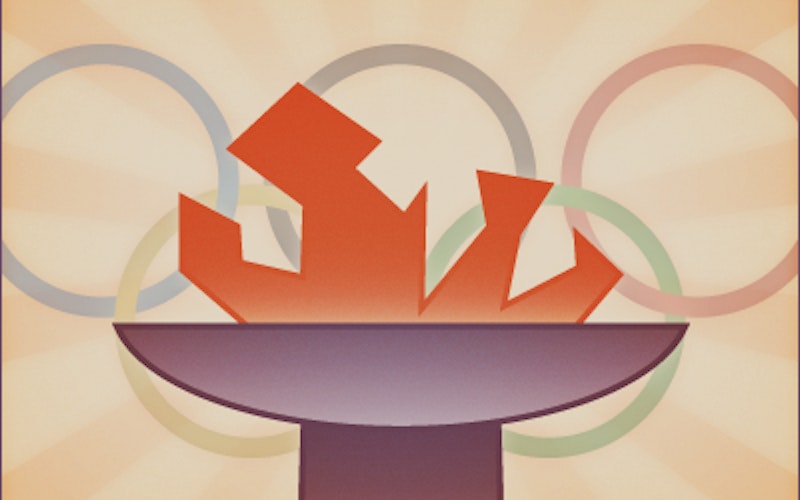
Culture At Large
Learning from the Olympics
Chariots of Fire. Jesse Owens. Mark Spitz. Mary Lou Retton. Peggy Fleming. The Dream Team. Tommie Smith and John Carlos raising black-gloved fists in Mexico City. Nadia Comaneci. Eric Heiden. A trembling Muhammad Ali lighting the flame in Atlanta. The Miracle on Ice.
All of the above are reasons why I’m eagerly awaiting the London Olympics, which open tomorrow. To the naysayers and critics who complain about the expense and excess and politics, I say, “So what?” I agree that the aged men in blazers who drone on about the “Olympic ideal” make the Opening Ceremonies last longer than a Terrence Malick movie. But I don’t care. Let the games begin, because amazing things always happen.
Thirty-six years ago I sat in the Olympic Stadium in Montreal with my grandfather, uncle and cousin and watched Alberto Juantorena win gold. As a Cold War kid, I wasn’t supposed to be rooting for a Cuban, but I couldn’t help myself. Juantorena had a nine-foot stride! Go out and measure yours - it won’t be half of that. Later, I watched the USSR and East Germany play a soccer match and wondered how many KGB agents were sitting around me. We stayed with a French-Canadian family who rented rooms in their home because the hotels were full. That alone gave us the sort of cross-cultural experience the Olympics are supposed to be all about. I treasure the memory of being there.
What the Olympics unfailingly deliver is remarkable insight into the best and worst of what it means to be human. We pay attention because we know there will be both heroic accomplishment and crushing disappointment. Competition is at best morally ambiguous, and we see both the glory and the curse of our humanity lived out in bold tones over the course of two weeks. For every Jamaican bobsled team there seems to be a corresponding Tonya Harding, for every injured Kerri Strug being hoisted in triumph there’s a corresponding, injured Mary Decker Slaney writhing on the track in tears.
Competition is at best morally ambiguous, and we see both the glory and the curse of our humanity lived out in bold tones over the course of two weeks.
Like most, I prefer to focus on the glory. I’m thrilled with the news that South African double amputee Oscar Pistorius has made his nation’s Olympic track team and will be competing on two carbon-fiber prosthetic blades in place of lower legs and feet. You might need to check your pulse if that doesn’t warm you. I’m eager to see how Michael Phelps fares against Ryan Lochte. I’m eager to see Missy Franklin swim with her size 13 feet - it’s like she was born with flippers. And I’m sure there’s going to be someone I’ve never heard of who will steal my heart. The Olympic flame illuminates the glories of being alive every four years.
I’m pretty sure I have apostolic backing on this. Paul never met an athletic metaphor he didn’t like. He “pressed on toward the goal to win the prize,” “finished the race,” “wanted to be sure he was not running his race in vain” and reminded the Corinthians that “everyone who competes in the games goes into strict training.” Paul saw many parallels between the “games” and the Christian life.
I do too. Here are a few things the Olympics teach us: Do your best. Learn about others who are different from you. Mark big events with ceremonies. Play. Recognize accomplishments. Strive for peace. Pass the baton. Realize your true competition is internal. Work in teams. Lose with grace. Represent more than yourself. And above all, keep the flame burning.
What Do You Think?
- Do you see value in the Olympics?
- What Olympic stories have resonated with you?
- Is there a cost to holding the games?
Topics: Culture At Large, Arts & Leisure, Sports, News & Politics, World